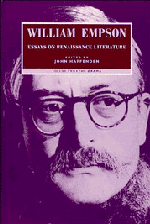10 - The spirits of the Dream
Published online by Cambridge University Press: 03 February 2010
Summary
I am aiming towards a reconstruction of what the first audiences of Elizabethan plays thought of Marlowe's Dr Faustus, because there is clearly something wrong with the two surviving texts; so I have to estimate what the first audiences would think about magicians. The view of the forces of nature presented in the Dream is majestic and profound, and the theme had never before been treated with such grace and poetry; but probably, so far from baffling the first spectators, it seemed rather old-hat when it was new, a harking back to an earlier theatrical fashion. Also what I have to say about it can be said quite briefly. But I need to make it prominent in my scheme because the earlier surviving examples are not so impressive, though equally good as evidence about the audiences. First I must give some report of the recent studies on the magicians of the sixteenth century, which are bound to alter our reading of its literature; but I should avoid repeating at length what is already known from works carrying more authority. An attempt to pick out the decisive points at issue should be more within my range.
The crucial question, granting that there are spirits of more than one kind, and the Bible gave pretty unbreakable support for angels and devils, was whether there are neutral spirits, not wearing the uniform either of God or Satan. And if so, of course, whether we can get on comparatively workaday terms with them. It would be excessive to say, as some experts did, that these Middle Spirits are ‘neither good nor bad’; they are merely like ourselves.
- Type
- Chapter
- Information
- William Empson: Essays on Renaissance Literature , pp. 170 - 248Publisher: Cambridge University PressPrint publication year: 1994
- 1
- Cited by



